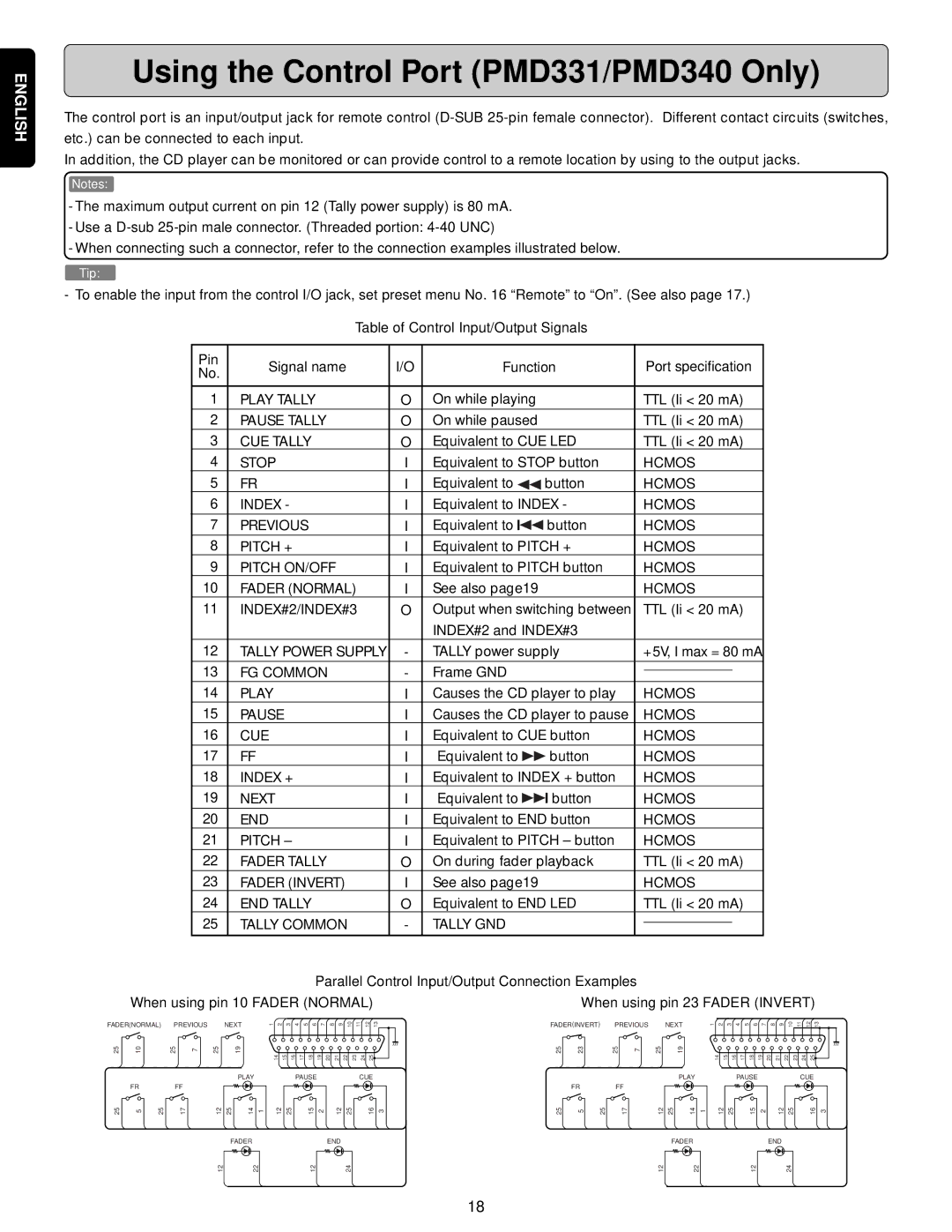PMD330, PMD340, PMD331 specifications
The Marantz PMD series has long been a staple in the world of professional audio and recording, with its PMD331, PMD340, and PMD330 models standing out for their exceptional features and robust performance. These portable digital recorders cater primarily to audio professionals, musicians, and content creators seeking reliable tools for high-quality sound capture.The Marantz PMD331 is known for its user-friendly interface and portability. It features dual-channel recording, ensuring that stereo sound is captured accurately, which is crucial for interviews, live performances, or any situation where audio fidelity matters. The PMD331 supports both solid-state media and SD cards, providing versatility in storage options. Its built-in stereo microphones, combined with adjustable gain controls, allow users to capture sound in various environments, ensuring crisp and clear audio even in less-than-ideal conditions.
Moving on to the PMD340, this model elevates the capabilities seen in the PMD331 with advanced features tailored for professionals. It includes enhanced audio formats like WAV and MP3, along with the option for high-fidelity recording settings. The PMD340 is equipped with a USB interface, which simplifies the process of transferring files to computers or other devices. This model shines in its battery life, allowing for extended recording sessions without the need for frequent recharges—an invaluable trait for on-the-go recording.
The PMD330, while slightly less feature-rich, boasts a reputation for reliability and simplicity. It offers solid audio recording capabilities for voice and music, making it suitable for podcasters and field recordists. Its straightforward control layout ensures that users can operate it with minimal training, making it a popular choice among novices and seasoned professionals alike.
These three models share common characteristics such as durability and ease of use, making them dependable tools in various recording scenarios. They also feature robust build quality designed to withstand the rigors of travel and frequent usage. The PMD series has maintained Marantz's commitment to superior sound quality, innovative technology, and professional-grade performance, ensuring that users have the right tools to capture their audio projects with precision and clarity. Whether for location recording or studio work, the PMD331, PMD340, and PMD330 embody the qualities that audio professionals seek in a portable recorder.

